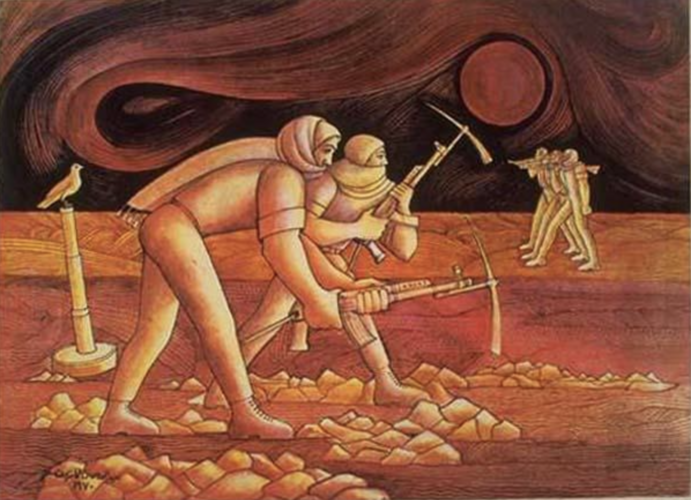Joud Al-Tamimi
Masha'at
Masha'at is a cross-disciplinary project that unfolds through study, publishing activities and infrastructural interventions. It investigates the significance of the agrarian within the context of Palestinian anticolonial struggle, engaging with agricultural cooperatives and community organisations across Palestine to examine organisational forms that disrupt dominant relations of labour and property, and gesture toward an alternative mode of production.
The project emerged in the aftermath of Al-‘Una Conference, which focused on the agricultural cooperative as a model for studying how specific modes of production, consumption and exchange shape social relations and political realities in Palestine. Building on this inquiry, Masha'at revisits the practices of participating cooperatives as potential historical precedents of an insurgent economics that could self-sustain beyond decolonisation.
Responding to the centrality of private property in the history of colonisation in Palestine and the region at large, the project situates its inquiry within a broader speculative study of the Palestinian masha' (commons) as a political horizon, as a praxis and a potential past-future. In doing so, it draws on the idea of prefigurative politics: practices that are always already here and yet to come. The masha', in this sense, is not simply a historical form, but a speculative proposition- linking collective agrarian practices to the prospect of return and reclaiming a non-alienated relationship to land.
Much like the camp-communes of earlier Palestinian revolutionary movements- anchored in the geography of villages of origin yet oriented toward outward political movement (Abourahmeh, 2021) - Masha'at explores how current agrarian formations connect the memory of a pre-colonial past with the imaginary of a liberated future.
The project locates itself within a genealogy of cultural practices from Palestine, the region and beyond that embody a practice of ‘witnessing’ that is deeply entangled in the speculative act of worldbuilding, a witnessing of “other possible worlds from within ecological, political and economic disaster”, one where “ongoing practices of autonomy and care meet the violence of settler colonialism with the sense that it can be otherwise.” (Estefan, 2021)
*Mashaat unfolds in various iterations with an evolving network of collaborators.
Bio
Joud Al-Tamimi is an artist and curator. She studied Politics and Economics at the School of Oriental and African Studies (SOAS) in London. Her research focuses on anticolonial imaginaries, insurgent economics and psychoanalysis. She worked at Darat al Funun from 2019-2021, where she directed The Lab program and curated the trilogy: Internet of Things: Another World is Possible, Measuring Life: Notes Toward an Impossible Exchange and Postcolonial Ecologies. Currently, she is completing a fellowship at the Universität der Künste Berlin.
